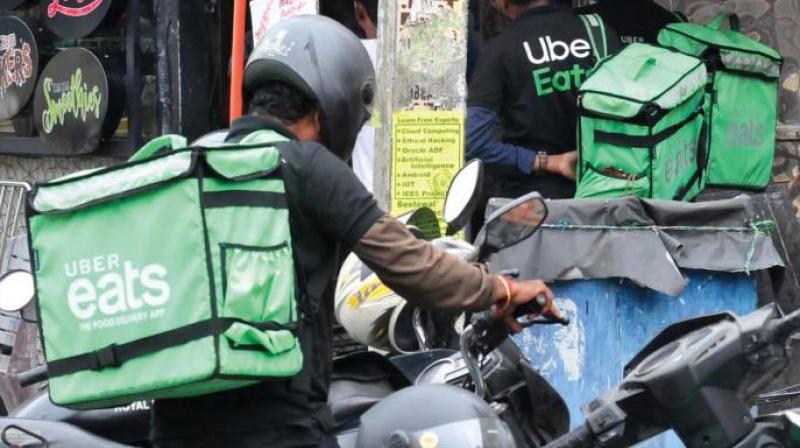Thank you for smoking

When my good buddy, GautamKutty, launched Smoke in 2017, the relief of being able to focus on cooking, instead of having to do PR kissy-face with a bunch of freeloaders, was writ large on his face. “Maccha, my backers have bought the place, so I don’t have to worry about rent,” he confessed disarmingly. Any misgivings about opening in Koramangala, which at last count had as many eateries as there are LokSabha seats, were dismissed as “more the merrier”, which now seems like misguided optimism.Initially Bangalore’s glitterati flocked to the place, chomping down vast quantities of Maryland pit beef, Kevin Spacey drool-worthy ribs and pale pink slices of air-dried ham with freshly baked sourdough bread. To borrow a GenY term, it was rocking.
Cut to 2019 and Smoke is shutting shop; apparently diners have decided that smoking is injurious to their health. While there are many reasons, chief among them are the blood-sucking parasites known as Swiggy, Zomato and UberEats, the Ebola virus of the craft kitchen business. If you found that harsh, bear with me while I explain.
When Smoke first opened, they didn’t offer home delivery, due to concerns about traffic delays and spoilage. Then all of a sudden Swiggy’s Hunger Saviours was launched and it was the case of the Arab, the camel and the tent. Deliveries shot up to 30% of sales and that was the beginning of the end. How many of us foolishly assume we are improving our favourite restaurant’s profitability when we swipe an app? That is simply not true because the pimp, or the middleman if you prefer, gouges out a margin of 30% from the restaurateur and then insists on a 20% discount for the customer.
To understand why a 30% delivery-service charge doesn’t make sense, do the math. Ingredients cost 30%, labour costs 30%, another 25% goes on rent, bribes, insurance and credit-card fees which leaves a very slender 15% profit margin. Delivery is like the crack cocaine of restaurants: once you get hooked, it’s only a short time before you’re addicted and running to stay in place while cooking frantically to keep your pimp profitable.
Don’t get me wrong: there are certain foods that work well with home delivery, biryani and pizza for example, and the picky eaters who order these “delicacies” by the truckload will back me up on this. But if you’re craving tuna ceviche, smoked bone marrow or char suipork and opt for home delivery, you may as well buy a carrier pigeon and pray that the bird has a strong stomach. I mean, seriously, what are you smoking? Get a drone.
Elizabeth Gautier, founder of Mulberry & Vine, ruefully confessed in a recent New Yorker article, “We know for a fact that as delivery increases, our profitability decreases.” For each order that her upscale restaurant sent out, between 20-40% went to the pimps. She initially employed her own couriers, but was forced to lay them off due to coordination challenges. Gauthier estimated that her profits had shrunk by 33% over the last three years and that the only obvious contributing factor is the shift toward delivery. “I think we are losing money on delivery orders, or, best-case scenario, breaking even.”
Of course the parasites will never admit this. They will solemnly sing from the manual of “incremental revenue, reduced wear and tear on crockery,” and my favourite: “lean staffing profile”. This may be swallowed by Americans who having been exposed to Frosties and hot dogs from infancy don’t know any better but the privileged among us who have savoured “malipoo idlis” and “benne dosa” know better. America’s favourite show may be “The Price is Right” but we are fans of “The Taste is Right.”
When owners whine, the pimps come up with another seductive argument: home delivery is a marketing exercise providing access to a customer pool who will eventually convert to big spender restaurant patrons. Yeah, right. Mary Poppins logic: a spoonful of sugar makes the medicine go down, so what if you are diabetic.
The problem is that as we become lazier and app-dependent, home delivery turns us into mindless slobs munching microwaved food while the cathode rays of the IPL wash over our glazed eyes. A recent Morgan Stanley survey found 43% of delivery patrons admitting that takeawayhad replaced their family outing. That’s why the “incremental” argument no longer holds. “It’s total bull****,” says Justin Rosenberg, the CEO of Honeygrow.
What is truly ironic is that most of these crappy apps are unprofitable with Zomato reporting losses of 390 cr last fiscal on a turnover of 460 cr. My heart bleeds for Gautam who ruefully said, “Man, I had to decide whether to sell food or my soul.”
Ajit Saldanha has a finger in the pie, and another on the political pulse. And when he writes, he cooks up a storm

